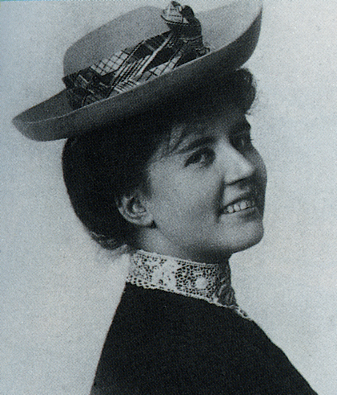Laura Ingalls Wilder & Rose Wilder Lane
 Today, Google celebrates Laura Ingalls Wilder’s 148th birthday. I appreciated the nudge, since it called to mind Laura Ingalls Wilder’s daughter, Rose Wilder Lane. According to historian Jennifer Burns, although she “took no public credit, Lane was essentially a coauthor of the best-selling Little House on the Prairie series,” weaving “libertarianism delicately through the nostalgic books.” Google’s prod also revealed that it was not until this year that Wilder’s autobiography published, describing life as it really was: Pioneer Girl
Today, Google celebrates Laura Ingalls Wilder’s 148th birthday. I appreciated the nudge, since it called to mind Laura Ingalls Wilder’s daughter, Rose Wilder Lane. According to historian Jennifer Burns, although she “took no public credit, Lane was essentially a coauthor of the best-selling Little House on the Prairie series,” weaving “libertarianism delicately through the nostalgic books.” Google’s prod also revealed that it was not until this year that Wilder’s autobiography published, describing life as it really was: Pioneer Girl
As for Lane, she is known as one of the three founding mothers of the American libertarian movement and had the privilege of corresponding with Ayn Rand when Rand decided to move forward with her Atlas Shrugged. But as much as Lane tried to understand and embrace Ayn Rand’s developing individualism, she found herself opposing it at its core. Describing a typhoid epidemic on the prairie, Lane writes to Rand:
People ‘helped each other out,’ that was all . . . It was just what people did, of course. So far as there was any idea in it at all, it was that when you were sick, if you ever were, the others would take care of you. It was ‘common neighborliness.’ . . . The abnormal, that I would have thought about, would have been in its not being there . . . There IS a sense of ‘owing’ in it, of mutuality, mutual obligation of persons to persons as persons.
This way of thinking about moral deliberation and the role of ‘reason’ in our knowledge of the good is surprisingly similar to some of my work at the intersection of philosophy and cognitive neuroscience. What is ‘normal’ in our social environment disappears. It is not really ‘there for us’ in terms of conscious thought and deliberation. It is not positive perceptual stimulation that gives rise to what we explicitly see in the world. Rather, conscious engagement is provoked by the absence of the normal. What is ‘there for us’ is what unsettles, the new.
This is good company to have. Lane was skeptical of any talk of ‘rights’ that implied ‘dualism’ (which wasn’t as easy to do then as it is now) and she is known as one of the few intelligible libertarian moral philosophers of the 20th century.
All quotes are taken from Jennifer Burns’ fantastic book on the life behind the work of Ayn Rand: Goddess of the Market. (I have also mentioned Burns’ work on Rand here.)
No Comments
No comments yet.
RSS feed for comments on this post.
Sorry, the comment form is closed at this time.
Comments Off

